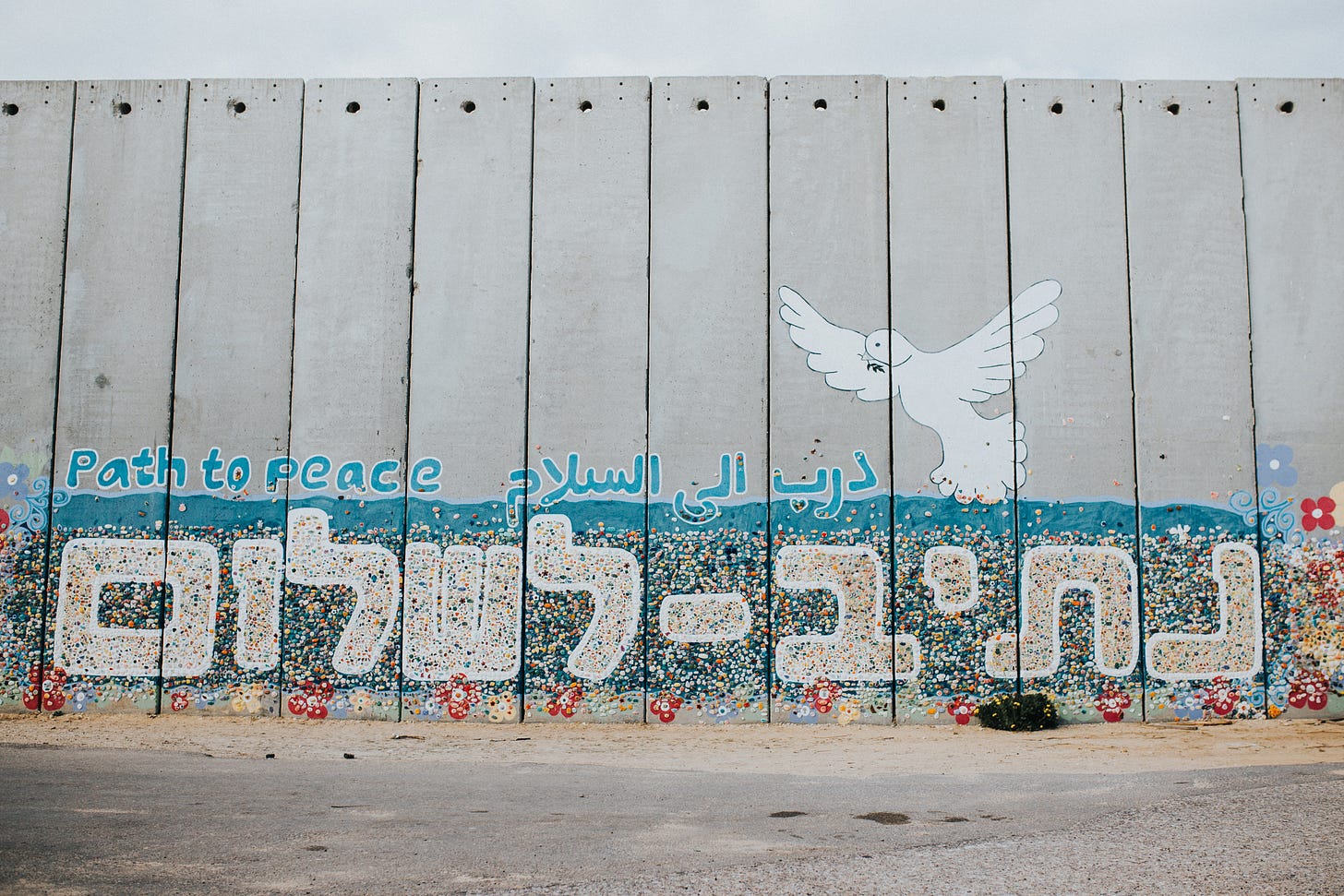Make trade, not war: A solution to the Israeli-Palestinian conflict
As a general rule, don't build a wall. Walls leave scars, not only on the landscape but, more importantly, in the mind of those on both sides of it. They are seeds of exclusivity, of ignorance, of arrogance. They provoke anger, destroy trust, and impede any attempts at conciliation between disputing factions. Building walls is never a sustainable solution.
Nowhere is this more clear than in the current conflict between Israel and Palestine. A wall of separation – called the anti-terrorist barrier if you ask the Israelis and the anti-apartheid wall if you ask the Palestinians – has kept the two groups apart, and has prevented any possibility of peaceful co-existence. In fact, it has spawned greater antagonism on both sides: the current conflict has claimed the lives of countless people, mostly Palestinians, owing to the superior defensive and offensive capabilities of the Israelis. (For an excellent, quick and somewhat violent overview of the history of the region, watch this.) What is clear is that the wall has not solved anything. It was built with the purpose to lessen the 'frictions between people'; in truth, it has only prolonged (and perhaps deepened) the conflict.
Surprisingly, South Africa never had an anti-apartheid wall of its own. While government policy dictated that certain areas were designated for certain race groups, permanent walls separating districts or cities were never constructed to keep people out, or in. I suspect an important reason for this was economic: white South Africans were too dependent on black South Africans to afford complete isolation. In fact, the realisation that both groups depended on another for a better life was one of the key reasons the apartheid policies eventually failed, and which made a peaceful transition possible. Had South Africa had walled-off regions of white and black exclusivity with little interaction between them, a full-scale civil war would have been far more likely.
Another example comes from twentieth-century Europe. After World War I, Western Europe failed to integrate economically. The heavy debt imposed on Germany devastated their economy, and the Great Depression of the 1930s increased trade barriers between countries, reducing cross-border European trade further, hurting the already struggling German economy and giving rise to the radical nationalism of Hitler. The only consequence was another war. After World War II and its incredible suffering which must have created an immense urge for retribution on both sides, European leaders acknowledged that further isolation will only sow the seeds of future unrest. Instead, the foundations of the European Union was formed, relaxing and later removing trade barriers between France and Germany, the two largest countries of Western Europe and on opposite sides of the war. Today, only 60 years later, because of the dense economic integration in Europe, the idea of war in Western Europe is utterly implausible.
Better leadership is often mentioned as the only way to solve the current Israeli-Palestinian conflict. And it is true that in the case of South Africa, Nelson Mandela and FW de Klerk played an immense role in ending the period of apartheid and creating the conditions for a smooth transition to democracy. But I doubt whether talks between Khaled Mashaal of Hamas and Benjamin Netanyahu of Israel would yield any positives without an understanding that the survival, and indeed the prosperity, of the other depends on their sustained cooperation and integration. The distrust, enmity and racism on both sides cannot be eradicated without their interaction, and there is no better way to halt interaction than by building a wall.
Axe has a new advert – #KissForPeace – which tells us, much like the hippies of the 1970s, to 'make love, not war'. But love and peace won't happen if there is no incentive for it. If South African (and twentieth-century European) history has taught us anything it is that centuries of racial prejudice (and the threat of conflict) can only be solved with deeper economic integration and repeated human interaction. Only once people realise how much they stand to lose if they hate, will they begin to accept peace. And once they realise that the 'other' is not all that different, in fact, that life is better with greater diversity, they may also begin to love.
The wall of separation between Israel and Palestine has only exacerbated the tension. As difficult as it may seem currently (and perhaps this conflict has moved the struggle beyond the point of no return?), tearing down the wall and allowing the movement of goods, services and people across the border is the only enduring solution to the Israeli-Palestinian conflict. Make love peace trade, not war.
*Photo by Cole Keister on Unsplash.


